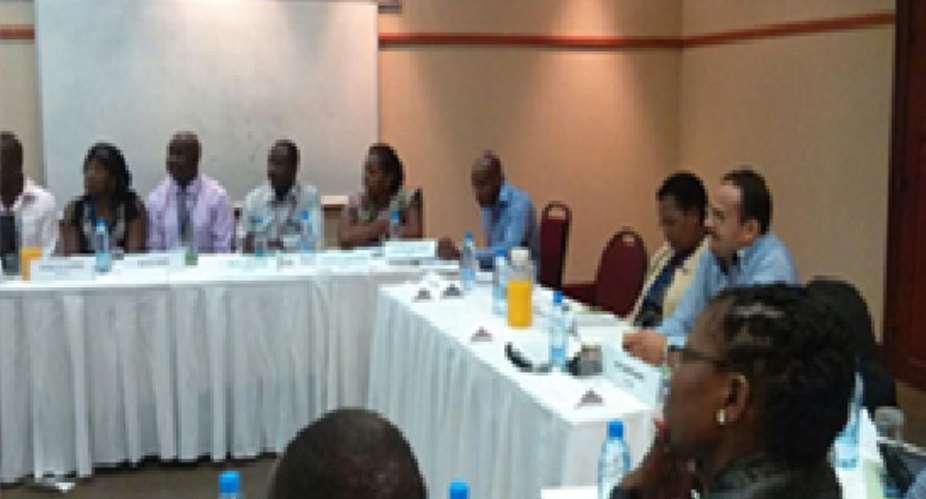The United Nations University Institute for Natural Resources in Africa (UNU-INRA) has opened a training workshop in Lusaka, Zambia to equip African researchers, businesses, environmentalists and economists.
Twenty-three persons from Ghana, Cameroun, Nigeria, Kenya, Zimbabwe, Egypt, Uganda, Malawi, Benin, Swaziland, Tunisia and Zambia are taking part in the five-day workshop.
The training would enable them to identify potential risks of their business activities on the environment as well as develop effective management strategies to mitigate them.
Themed: “Greening Business through Biodiversity and Ecosystem Services”, the workshop falls under the UNU-INRA's Green Economy Project.
It is titled: “Unleashing the Potential of African Rural Economies through Green Growth”, a project that is being supported by the International Development Research Centre (IDRC).
The workshop also aims at enhancing the understanding of the participants on the roles and responsibilities of businesses in the conservation and use of biodiversity and ecosystem services to ensure a successful transition towards green economy in Africa.
The Green Economy Research Fellow of UNU-INRA, Dr. Calvain Atewamba, recognized that in as much as human beings have to depend on nature for business and food, the impact of their activities on the environment have to be mitigated.
“All businesses are dependent on the planet's biological diversity and all business activities impact either negatively or positively on the environment. Providing reliable information and tools to assess business impacts and dependences on natural resources and how to manage these risks and opportunities could be a competitive advantage to accelerate Africa's transition to green economy”, stated Dr. Atewamba.
He also noted that business activities, particularly in the extractive industries have led to challenges including freshwater scarcity, overexploitation of oceans, pollution and climate change, and appealed to organisations to integrate environmental values into their corporate strategies, and put in place monitoring and evaluation systems to reduce the risks of their operations on mankind and nature.
Doing this, he said, will help improve their reputation and thus impact their bottom-line.
The Director of UNU-INRA, Dr. Elias T. Ayuk, in explaining the importance of the workshop, underscored the Institute's commitment to capacity strengthening in natural resources management in Africa.
“We organise these workshops to bridge the gap between knowledge and delivery. This particular workshop is very important because African businesses need to pay more attention to the impact of their activities on economic development”, Dr. Ayuk said.





 Saglemi Housing Project will not be left to rot – Kojo Oppong Nkrumah
Saglemi Housing Project will not be left to rot – Kojo Oppong Nkrumah
 Transport fares hike: GPRTU issue two-day ultimatum
Transport fares hike: GPRTU issue two-day ultimatum
 ARC endorses Alan as presidential candidate – Buaben Asamoa
ARC endorses Alan as presidential candidate – Buaben Asamoa
 Akufo-Addo appoints Kwasi Agyei as new Controller and Accountant-General
Akufo-Addo appoints Kwasi Agyei as new Controller and Accountant-General
 PNC dismiss reports of mass resignations
PNC dismiss reports of mass resignations
 PAC advocates for revenue collectors to be engaged on commission basis, not full...
PAC advocates for revenue collectors to be engaged on commission basis, not full...
 Genser Energy commissions 110km of natural gas pipeline at Anwomaso
Genser Energy commissions 110km of natural gas pipeline at Anwomaso
 Naa Torshie calls for tolerance, peace ahead of 2024 election
Naa Torshie calls for tolerance, peace ahead of 2024 election
 Asantehene commends Matthew Opoku Prempeh for conceiving GENSER Kumasi Pipeline ...
Asantehene commends Matthew Opoku Prempeh for conceiving GENSER Kumasi Pipeline ...
 Let’s do away with ‘slash and burn politics’ in Ghana — Dr Adutwum
Let’s do away with ‘slash and burn politics’ in Ghana — Dr Adutwum
